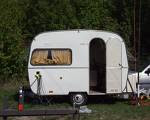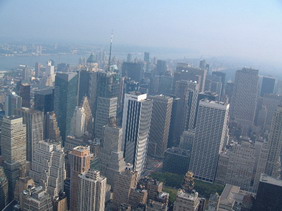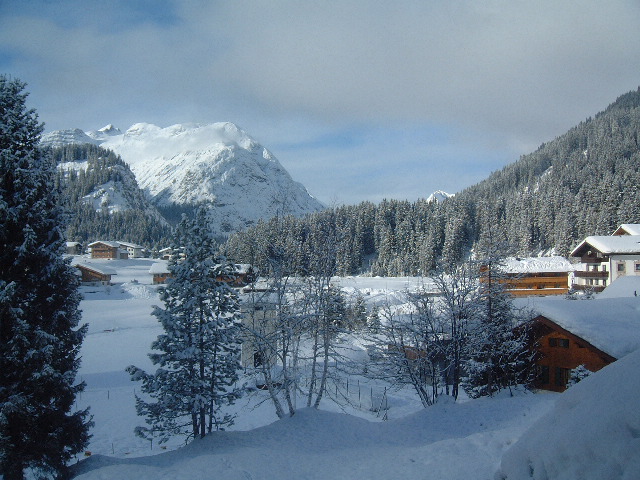
Have the "Get everybody off the roads" brigade gone mad?
Figures of £1.28 per mile have been suggested at rush hour on motorways. This is completely out of order and defies logic. People will still use their cars, the public transport system in this country will never be as good as it needs to be. The net result will be increasingly clogged A roads and empty motorways. More traffic jams and more CO2 emissions. There has to be a better way of tackling the problem.
I suggest a levy of £2 a mile for caravans and people with cloth caps driving Metros -that should fix it.
DURHAM TOLL ROAD HITS SMALL TRADERS
The first UK toll road in 100 years was introduced Durham on 1 October, 2002. Drivers are charged £2 to enter a small part of the city centre between 10am and 4pm, Monday to Saturday. The affected area runs from the entrance to the Market Place, up along the historic, narrow Saddler Street, to the Durham Cathedral peninsular. A ticket machine is linked to an automatic barrier in the carriageway, which lowers when drivers pay to leave the charging zone. The system is monitored by security cameras and drivers caught dodging the charge are liable for a fine of up to £30.
Traffic in the zone has fallen from 2,000 to 200 vehicles a day, much more than the 50% expected by planners, and there is a European feel to the old city area, with shoppers walking casually in the single-carriage roadway alongside the occasional vehicle.
According to the BBC the local council is pleased and claims that the environment has benefited, and that the roads were now safer.
"This is a model that can be used on a small scale for historic places such as Durham, or large scale for cities like London." said their spokesman.
Some small independent traders are less keen, and have complained at having to pay £2 every time they take a delivery to their shops during the charging hours. They also claim that, paradoxically, there are now less casual pedestrian visitors than when there were more cars in the zone.
Peter Jackson, chairman of the local chamber of trade, agrees that the schemes has cut down the vehicles, although he doubts the reduction is as great as the county council says. "The real problem for business is that if I want to unload from a van it costs me £2 a time. I have at least 500 deliveries a year, which means £1,000 in charges a year.
The council argues that traders are learning to alter their delivery hours and methods, and that people who live and work in the zone are also adjusting to the charges.
The City of Durham Civic Trust also supports the scheme. Its chairman Roger Cornwell said: "Pedestrians have been given a chance to reclaim the street. Having just one barrier may seem a rather low-tech solution, but it appears to be working. There is a reduction in the number of people who would drive in just to use a cash point, or to drop someone off and then come back five minutes later to pick them up."
And local resident Henry Martin Taylor said: "It is a definite improvement, with more pedestrians and less traffic. I am all for it." 21 Feb 2003
Figures of £1.28 per mile have been suggested at rush hour on motorways. This is completely out of order and defies logic. People will still use their cars, the public transport system in this country will never be as good as it needs to be. The net result will be increasingly clogged A roads and empty motorways. More traffic jams and more CO2 emissions. There has to be a better way of tackling the problem.
I suggest a levy of £2 a mile for caravans and people with cloth caps driving Metros -that should fix it.
DURHAM TOLL ROAD HITS SMALL TRADERS
The first UK toll road in 100 years was introduced Durham on 1 October, 2002. Drivers are charged £2 to enter a small part of the city centre between 10am and 4pm, Monday to Saturday. The affected area runs from the entrance to the Market Place, up along the historic, narrow Saddler Street, to the Durham Cathedral peninsular. A ticket machine is linked to an automatic barrier in the carriageway, which lowers when drivers pay to leave the charging zone. The system is monitored by security cameras and drivers caught dodging the charge are liable for a fine of up to £30.
Traffic in the zone has fallen from 2,000 to 200 vehicles a day, much more than the 50% expected by planners, and there is a European feel to the old city area, with shoppers walking casually in the single-carriage roadway alongside the occasional vehicle.
According to the BBC the local council is pleased and claims that the environment has benefited, and that the roads were now safer.
"This is a model that can be used on a small scale for historic places such as Durham, or large scale for cities like London." said their spokesman.
Some small independent traders are less keen, and have complained at having to pay £2 every time they take a delivery to their shops during the charging hours. They also claim that, paradoxically, there are now less casual pedestrian visitors than when there were more cars in the zone.
Peter Jackson, chairman of the local chamber of trade, agrees that the schemes has cut down the vehicles, although he doubts the reduction is as great as the county council says. "The real problem for business is that if I want to unload from a van it costs me £2 a time. I have at least 500 deliveries a year, which means £1,000 in charges a year.
The council argues that traders are learning to alter their delivery hours and methods, and that people who live and work in the zone are also adjusting to the charges.
The City of Durham Civic Trust also supports the scheme. Its chairman Roger Cornwell said: "Pedestrians have been given a chance to reclaim the street. Having just one barrier may seem a rather low-tech solution, but it appears to be working. There is a reduction in the number of people who would drive in just to use a cash point, or to drop someone off and then come back five minutes later to pick them up."
And local resident Henry Martin Taylor said: "It is a definite improvement, with more pedestrians and less traffic. I am all for it." 21 Feb 2003



No comments:
Post a Comment